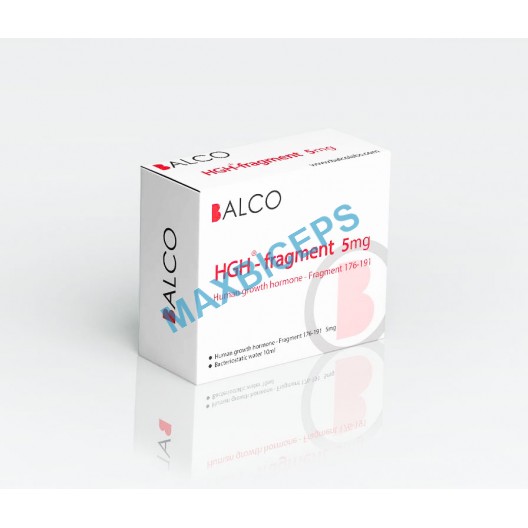Investigators and scientists at several studies and researches discovered that the fat-reducing effects of GH appear to be controlled by a small region near one end of the GH molecule. This region consists of amino acids 176-191, and is less than 10% of the total size of the GH molecule and appears to have no effect on growth or insulin resistance. It works by mimicking the way natural GH regulates fat metabolism but without the adverse effects on blood sugar or growth that is seen with unmodified GH.
More specifically, GH cannot be used as an anti-obesity treatment due to adverse effects:
On the contrary, HGH fragment can produce an inhibition of LPL activity in adipose tissue and stimulate lipolysis in adipocytes. At the same time, HGH fragment appears to have no effect on growth or insulin resistance. In that way treatment with HGH fragment cannot cause diabetogenic problems or influence the insulin metabolism. Also HGH fragment cannot cause fluid retention.
These segments of the synthetic peptide HGH Fragment (176-191) have been investigated for their in vivo effects in laboratory mice muscles. Research results have shown that HGH Frag (176-191) nave resulted to a short-period increase in blood glucose and amore sustained increase in plasma insulin, together with other fragments such as 172-191, 177-191 and 178-191. In addition, the researchers have suggested that functionality of the peptide depends not only in the informational sequence but should also have the correct physical configuration. Also, this fragment, being a region of high accessibility to proteases and also rich in praline, have been demonstrated to affect the conformational change in the cytoplasmic domain of the band 3 of erythrocyte membrane protein by serving as the hinge for the pivoting of the two subdomains. This then suggest that such residue is significant in conformational changes be serving as sites for peripheral protein binding in some body cells.
In another study on animal subjects, they found out that a 0.50mg dosage of the said hormone increased the lipolytic activity in adipose tissues without having negative influence in the blood glucose level. Furthermore, though it behaves like a human growth hormone (HGH), it does not causes hyperglycemia because it does not compete with HGH receptors. Because of such effects, researchers have suggested that it might be used for the elimination of excess abdominal fat which is less significant aspect of HIV-associated lipodystrophy. Other studies claimed that protein peptide HGH fragment (176-191) actually acts or the reduction of excessive adipose tissues (body fat) such as those in the abdominal area and increases muscle mass while enhancing the lipid content of the body In laboratory tests on fat cells from humans, HGH fragment released fat specifically from obese fat cells but not from lean ones, reduced new fat accumulation in all fat cells and enhanced the burning of fat. HGH fragment reduces body fat in obese subjects and enhanced fat burning without changing food consumption or inducing growth (as it does not increase IGF levels) or any other unwanted GH effect. HGH fragment has no ability to restore the body as HGH, and do not enhances athletic performance. Its entire effectiveness is consist in the extreme mobilization of fat burning.
100% ORIGINAL PRODUCT!!!
HGH fragment(5mg)
- Product Code: 5mg
- Availability: In Stock
- 83.99€
-
58.99€
- Ex Tax: 58.99€

